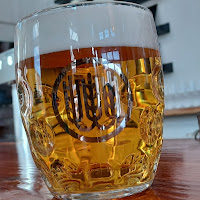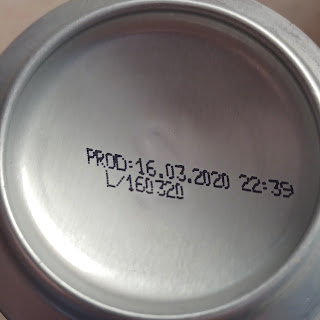First there came the beer, the colours, the aromas, the flavours, the multitude of things you can do with just four inputs, malt, hops, yeast, and water. Think of beers as diametrically opposite as a Czech 10° pale lager and jet black imperial stout, and everything in between, and you have wildly different interpretations and expressions of the same four basic inputs.
I am deliberately avoiding adjuncts here because the word "adjunct" just means something is non-essential, and rice, corn, marshmallows, breakfast cereal, invert sugar, etc are not really all that essential to make beer, they have their place, but they are not essential to beer per se.
Beer is a product of the genius of humanity, of our innate desire to experiment, our love of getting a buzz on - you folks going on about unsafe water supply, explain why most human settlements are beside rivers or have wells, we know how to find good water sources. Humans like to get tipsy, some humans enjoy getting drunk, they may even be the occasional weirdo who loves a good hangover, and as age creeps up on me, I am not assuredly not one of those.
None of this would be possible without the agricultural revolution that kicked off in the Neolithic period, when human beings started domesticating their meat supply, and their grain supply, by forming communities of farmers. Beer does not exist without agriculture. This simple fact is something I have back to time and again this year in my reading. Whether it is crop reports for barley and hops in various newspapers in the Austrian National Archive, or learning far more about malt than I could squeeze into a single Pellicle article, none of this is possible without farmers.
Of course, it is not just beer that is reliant on agriculture, cider, perry, wine, and basically every spirit known to man would not exist without farmers growing the raw ingredients. It fascinates me that basically every ancient culture created some form of fermented drink to use in rites of passage, celebrations, memorials, or their religious practices. If memory serves, it is in the Epic of Gilgamesh that the definition of being civilised is to eat bread and drink beer.
As I referred to at the top, first came my interest in the beer itself, then came my interest in the ingredients that brewers use to make the stuff, and so I started brewing my own. As a result of my interest in malt in particular, an appreciation of the grains and their producers is becoming an endless source of fascination. The fact, for example, that not all barley strains are created equal, you can't just turn any old barley into malt, and even malting barley needs an expert hand as it grows.
This may be one of the reasons I love the concept of the farm brewery, a distinct form of brewery license here in Virginia. They are perhaps the purest form of "craft" brewing, especially when using malt made from the grain they themselves grew, as is the case with Wheatland Spring, maker of many magnificent lagers, including the pilsner I crowned as number 1 in my recent Top 10 Virginian beer post.
Farmers are very much the unsung heroes of the booze industry, without them, there are no raw ingredients, and without raw ingredients to couple with the genius of humanity for creating buzz inducing products, there would be no booze.











